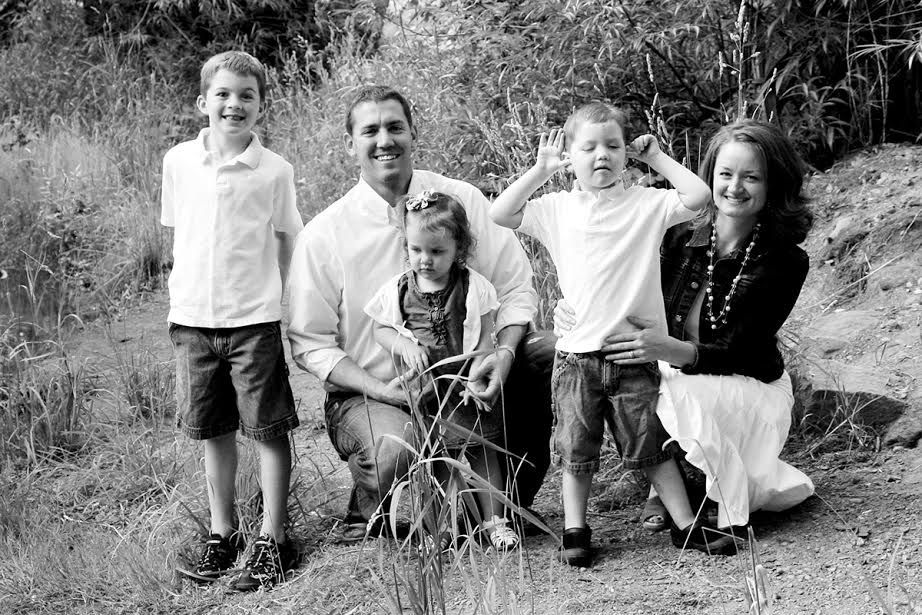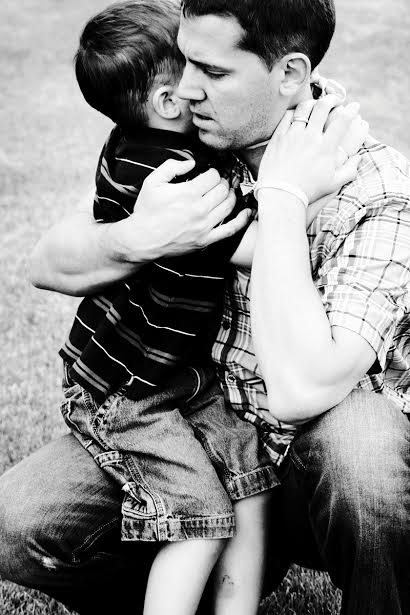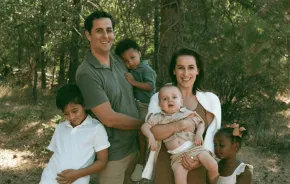 Mourning in America used to involve a full complement of customs that allowed for mourning to be acknowledged publicly and for time to heal.
Mourning in America used to involve a full complement of customs that allowed for mourning to be acknowledged publicly and for time to heal.
The process of mourning took years; it was shared by the community instead of endured by an individual.
Perhaps because of our fast-paced lives, or perhaps because deaths of young people (gratefully) have become more uncommon, we have collectively lost our ability to “mourn with those who mourn.”
In April 2010, we were at a hotel getting ready to go out for a bit. My then 3-year-old struggled to get his shoes on. “Come on, Mitch! Let’s get going!” I said. He looked up at me with two eyes going in different directions. My heart sank, and my stomach began to churn. While my husband tried to calm my concerns, I knew it was serious.
After several misdiagnoses and waiting periods, seven months later we found ourselves in Seattle Children’s emergency room after Mitchell woke up unable to walk. A brain biopsy confirmed brain stem glioma — a horrible diagnosis that generally means a prognosis of six to nine months to live. Through it all, we never gave up hope, and after a year of cancer therapy, we thought we had a fighting chance. When, in May 2012, Mitchell’s behavior became so unpredictable and erratic that a growth could be the only explanation, we had to face the truth. Our son was, for certain, dying.
Over the summer he rapidly declined. He could no longer walk, speak or eat. He withered away to a skeleton. It was horrific. It was daily lamenting. It was . . . so, so sad. When my beautiful angel took his last breath on Sept. 2, 2012, we held him and savored our last seconds with what was his body in this life. We said our goodbyes.

At his funeral, we heard a lot of “You’re so strong!” Or, “I don’t know how you’re keeping it together.” What does that mean?
Guess what, we’re not strong, not at all. It doesn’t matter whether a child is taken unexpectedly or, as with Mitch, has suffered for years. It hurts. I’ve spoken with several parents who have lost children; a lot of our feelings are the same. Why him/her? Why now? What could I have done better? Or the worse thoughts: How am I going to protect my other children? What if this happens to them? How will I be able to get through that?
It assuredly would seem bizarre to an outsider, but to my panic-trained mind, every “My tummy hurts,” every fall — they all lead to Oh no! What if he has cancer?
We don’t find fault with these statements; it’s just that, what can they mean? Are they telling us that by not sobbing uncontrollably, we are mourning in a better way?
Grieving is a long and arduous process. Remember how we were strong at the funeral? Fast-forward four to six months, when I really needed help; when the shock had worn off and I was actually forced to deal with the reality that my son will never be with me in this life again. I struggle most days to get out of bed in the morning, and caring for my home and family is overwhelming. My whole body hurts, and my emotions are a roller coaster. People say, “Maybe you should try an antidepressant.” I’m not depressed; I’m grieving. I don’t need a pill; I need a friend.

When someone is in grief, please, show up at the griever’s home with dinner; take her child out to do something fun; help fold laundry. Maybe schedule a massage for her or take her out to lunch when she feels up to it. Donate to a charity or perform an act of service on behalf of the deceased person.
Friends who lived a state away sent us “fruit of the month” boxes to show they were thinking of us. One family brought us a treat on the 2nd of each month (the day my son passed away) to quietly let us know they remembered. Another friend ordered a special mother’s necklace for me.
I had to lose my son to empathize with someone enduring grief. People struggling don’t have energy to make a list of things for others to do, so do not wait for it. Action is the necessary ingredient.
Our minds and emotions are permanently stuck in roller-coaster mode, even though when we leave the house we put on our game face. Please, never say, “I know what you’re going through,” because no one does. That said, grieving can hurt less when it is shared. Be a willing listener and supporter, but follow the griever’s lead, because we all go at different speeds.
We just passed the first anniversary of our son’s death. Many people seem to think the first year is the hardest, but those we have spoken to who have gone through this say the second year can be harder still. It is a lonely road that grieving parents walk. My heart and mind are desperate to ensure that Mitchell is not forgotten. Life keeps moving forward, while his memory fades away. Though his loss epitomizes every mother’s nightmare, there is still much left that frightens me. When I used to envision losing a child, I dwelt on the dying part. But I’ve learned that the hardest part is living life without my child.
I will live a happy life while always carrying a hole in my heart.









